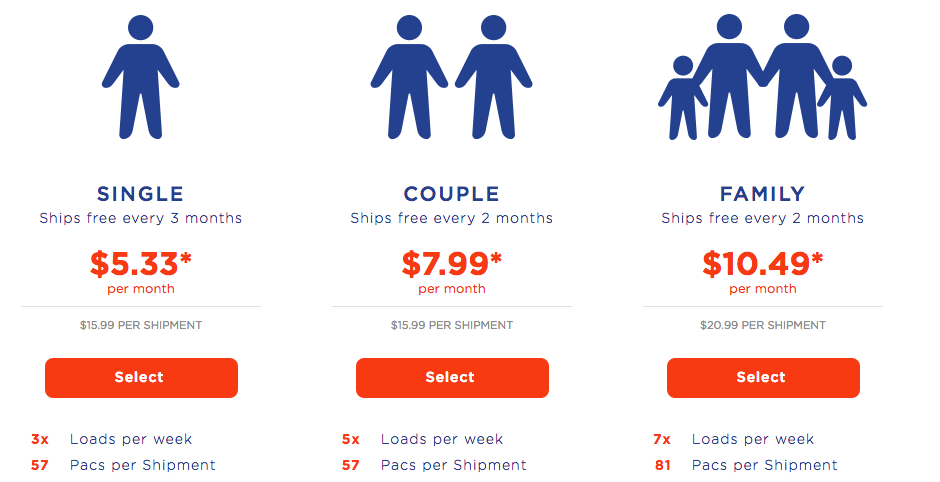Procter & Gamble’s New Idea To Move More Tide Pods: Automatic Subscriptions Image courtesy of Mike Mozart
Procter & Gamble has realized that it needs to stay ahead of consumer trends to stay a top seller of staple products like razors, detergent, and shampoo. The popularity of Dollar Shave Club took the company by surprise, so it began its own Gillette Shave Club, then apparently wondered what else they could ship to customers at regular intervals so customers wouldn’t have to go to the store. After all, if they don’t have to think about buying razors, they don’t have the opportunity to switch brands.
That’s the idea behind a concept that the company is testing in Atlanta, the Tide Wash Club. The pods, which consist of detergent in a dissolvable coating, haven’t really caught on as much as the company would like, possibly because safety advocates, including our own colleagues at Consumer Reports, have warned that the poisonous pods could be eaten by small children.
The other possible explanation for poor sales could be that using pre-measured doses means we can’t overdose on detergent, which is one of the reasons why Tide has begun recommending that consumers use multiple pods per load. The ostensible reason is that there are bigger washing machines on the market now, requiring larger loads, but P&G’s competitors say that it’s all a cash grab.
The Wash Club experiment is now available in Atlanta, and prices are higher than what Amazon charges for the same products.

Procter & Gamble has registered some interesting trademarks, though, including Dollar Laundry Club and Dollar Wash Club, showing that the company’s war against Dollar Shave Club continues. The problem is, of course, that none of the plans cost a dollar, except maybe the one for single people that charges less than a dollar per week.
Tide Wash Club [Official Site]
P&G Starts Online Subscription Service for Tide Pods [Wall Street Journal]
Want more consumer news? Visit our parent organization, Consumer Reports, for the latest on scams, recalls, and other consumer issues.

